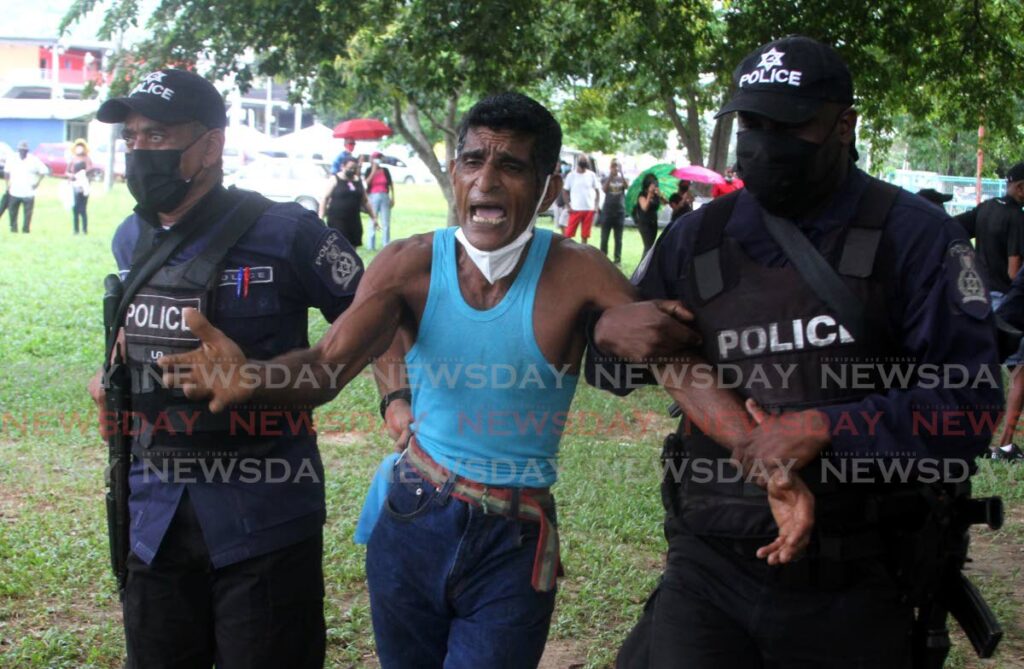Savannah madness

On Tuesday, a large crowd gathered at the Queen's Park Savannah to protest the government's approach to managing the covid19 pandemic.
The demonstration was the culmination of protest walks from south Trinidad by UNC activist Victor Roberts and Umar Abdullah of the First Wave Movement.
Mr Abdullah, who has described himself as reformed after his days of distributing propaganda material for ISIS recruitment, has been a lightning-rod presence in protests against restrictions and was previously picked up by police during a September protest walk.
The Savannah crowds, numbering more than 100, flouted covid19 restrictions on gathering in groups of more than ten.
Twenty-nine people – some of whom claimed to be innocent bystanders – were detained as police officers broke up the “pushback” gathering.
Mr Roberts has claimed to be protesting the number of covid19 deaths in Trinidad and Tobago and the lack of ICU beds, ventilators and ICU-trained nurses in the parallel health sector. Mr Abdullah's group is avowedly anti-vaccination, describing current measures aimed at separating the vaccinated from the unvaccinated as “segregation.” His mission has led him to the front gate of Pleasantville Secondary after allegations of covid19 infection there and to the Red House on the anniversary of the 1990 coup attempt. Activist David Welch, arrested during the protest, argued that it was not an anti-vaxx protest, but a protest against a nonexistent vaccination mandate, which has neither been discussed in Parliament nor mentioned as a strategy by the government.
The Savannah gathering expressed a lot of anger, confusion and defensiveness about the restrictions that have been imposed to control the spread of covid19. Yet, in the face of a progressive roll-back of those restrictions, the country has not done well. Aspirational urgings to "flatten the curve" are no longer part of the cautionary conversation; all the curves are spiralling wildly upward. Daily case totals have been on a sharp rise since mid-October, surpassing the peak caseloads of May. Every day now seems to bring a new, unwelcome record, as cases continue to rise to levels that should leave nobody comfortable with gathering to shout angrily with or at strangers anywhere.
Psychologist Hanif Benjamin declared the problem a behavioural emergency, calling for a change in the conversation. Behavioural health consultant Dr Stacy Murray lamented the current approach, which emphasises fear tactics, warning that the efforts at persuasion only harden resistance. That's going to require the State to re-engineer its approach to public communication, a change it has been slow to make. It took riot police officers with tear gas to disperse Tuesday's crowd, and the miasma of misinformation and dangerous resistance still lingers.


Comments
"Savannah madness"